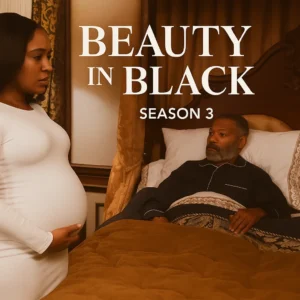The Tesla boss opposes Biden’s EV tariffs on China, which begs the question of how he would cope with Trump’s duties

This article is an on-site version of our Swamp Notes newsletter. Premium subscribers can sign up here to get the newsletter delivered every Monday and Friday. Standard subscribers can upgrade to Premium here, or explore all FT newsletters
It’s a question worth asking now that Donald Trump, should he be re-elected, has invited the Tesla boss to head up a new efficiency commission “tasked with conducting a complete financial and performance audit of the entire federal government and making recommendations for drastic reform”.
Musk said on X that he would look “forward to serving America if the opportunity arises. No pay, no title, no recognition is needed.” That’s fitting, in my opinion, since he’s on the federal payroll already: Tesla and SpaceX get more federal funding than National Public Radio.
Anyway, Trump is promising, as part of his economic platform, to “rapidly defeat inflation, quickly bring down prices, and reignite explosive economy growth.” Let’s put aside the fact (as the former president so often does) that inflation and prices are already falling, and growth under the Biden-Harris administration is the best in the developed world.
Instead, let’s ask a different question: What might Musk’s contributions to those goals be? We might start by looking at how the market values Musk, which doesn’t look good if you use the market cap of X (down 72 per cent since he took over), or the valuation and adjusted Ebitda of Tesla over the past few years. Tesla’s market value rose sharply during the pandemic, but has fallen by half since its 2021 high. Likewise, Tesla has struggled to keep up with the Chinese electric vehicle maker BYD, which produces its cars far more cheaply.
Musk said he opposes the EV tariffs that the Biden administration put on China, which begs the question of how he’d cope with the across the board tariffs being proposed by Trump. Goldman Sachs and many others have said Trump’s tariffs would kill the economy, and that Kamala Harris’ economic plan, while not ideal, would be better for growth overall.
Trump now says he’d put the revenues from tariffs into a sovereign wealth fund. These funds are often used to pay for things like education and infrastructure in countries that have them. I have a sneaking suspicion that if Musk were in charge, some of that money would be going to build out Tesla charging stations and SpaceX capacity.
Would that be good for growth? Maybe, but it would also increase an American oligarch’s chokehold on the economy, which is particularly problematic when it comes to things like the privatisation of space.
As with all privatisation, the idea is to drive down costs and increase innovation. To be fair, Nasa data from 2014 shows that SpaceX was able to deliver 1kg of cargo to the International Space Station at about a third of the price of the Space Shuttle. Private flights now conduct the majority of resupply missions for the space station, and even transport some crew. We’ve all watched in wonder as Boeing has effectively abandoned astronauts in orbit, leaving Musk to rescue them.
But as Harvard Business School professor Matthew Weinzierl has argued, although privatisation has decreased costs and increased innovation, it also has boosted monopoly power. Select, well-funded new space companies could piggyback on Nasa technologies that took decades to develop, while the established contractors which helped build them lost out. Taxpayers who funded the basic research got no stake in the wealth being created by billionaires in space, the largest public commons of all.
In many ways, this mirrors the public/private asymmetries of power seen in the building of 19th century railroad fortunes (which led to the last great era of US trustbusting in the 1930s) or in the commercialisation of the internet (in which a handful of big tech companies, like those run by Musk, profited above all others). Would that be good for the economy? It depends on if you are Musk, or the rest of us. Perhaps the real solution here is to do what we did back then, and turn Musk’s platforms into public utilities.
Peter, would you agree?
Recommended reading
I was struck by several pieces in the FT this week, starting with colleague Camilla Cavendish’s column on how parenting has become such an anxiety producing job. Her take very much dovetail’s with my friend Judy Warner’s book Perfect Madness: Motherhood in the Age of Anxiety, which she wrote upon returning to the US after a reporting stint in France, where things were more relaxed. Based on Camilla’s piece, it seems anxiety has crossed the Atlantic. I think it’s fascinating how this coincides with the epidemic of loneliness that I wrote about a while ago.
I also really loved the Big Read on how national security and economic security are becoming more interlinked, which is the subtext for my own column today on some of the Commerce Department’s new efforts around supply chain security. It features an exclusive interview with Secretary Gina Raimondo.
On a lighter note, I’ve long been a fan of celebrity chef Ina Garten, the Barefoot Contessa (her husband, economist Jeffrey Garten, is a longtime friend and source). The New Yorker’s profile of her was a great read. And yes, the coconut cupcakes really are all that . . .
I just dropped my son off at Northeastern University last week for his for freshman year, and I’m excited to see their model of education, which involves thinking much more deeply about the post-college experience and connecting education to the world of work (in ways that don’t undermine core liberal education). The university is getting kudos from various publications. As Swampians will know, I’ve been in favour of secondary and tertiary educational reform for some time. I think the kinds of deep work experiences offered at places like Northeastern are great way to make sure that six-figure educations actually pay off in the end.
Who will win the 2024 presidential election? Join FT journalists, including Rana Foroohar and Peter Spiegel, for an exclusive subscriber webinar on September 12, as panellists assess who is likely to prevail in the race for the White House. Register for free here.
Peter Spiegel responds
Rana, unless you actually want me to pontificate on the pros and cons of nationalising SpaceX and Tesla (I’m “con”, for the record), the question you’re really asking is, I think, two-fold: first, what would an “efficiency commission” headed by Musk look like; and second, what would Musk do if he were something more than just a commission boss, trying to “run” the economy as some kind of policy tsar.
Let me tackle the first of those questions first, because it is what Trump (and Musk himself) have proposed. I also want to tackle it because, for all the hype it has generated, it’s actually the regurgitation of an idea that keeps rearing its ugly head once every decade or so.
Not many people beyond the chemicals industry and the realms of political wonkery probably remember the name J. Peter Grace, who was the chief executive of the multinational chemicals group founded by his grandfather, WR Grace. In 1982, Ronald Reagan appointed him chair of — wait for it — an efficiency commission, to help “drain the swamp”. Sound familiar?
The so-called Grace Commission came up with some worthy recommendations, like better management of federal lands and privatisation of some government functions. But its proposals were largely ignored or buried by opponents in Congress.
Off the top of my head, I can think of at least two other similar efforts in my political lifetime: Bill Clinton tapped his vice-president, Al Gore, to head a “reinventing government” commission, formally called the National Performance Review. To be honest, the only thing I remember from Gore’s effort was his appearance on David Letterman’s show breaking an ashtray in some tortured effort to demonstrate how silly federal regulations were.
Then there was the Simpson-Bowles commission, appointed by Barack Obama and co-chaired by Democrat Erskine Bowles, a former top Clinton aide, and Republican Alan Simpson, an ex-Wyoming senator. Like the Grace Commission, Simpson-Bowles had some smart recommendations — few of which were ever adopted.
I raise these past examples to point out what should be obvious about the Trump-Musk proposal: very smart people, some with political radars that are much better attuned than Musk’s, have tried this before and accomplished very little.
As for the question in your headline, Rana, I’m not sure we have to guess at what Musk would do if he “ran” the economy. He’s been pretty open about his advocacy for the kind of crypto-libertarian worldview that has become popular in many corners of Silicon Valley — deregulate, privatise and deconstruct the administrative state.
But let’s be honest: neither Musk, nor any other individual, will ever really “run” the US economy. Presidential power is limited by Congress, independent agencies like the Fed and private sector actors like the international capital markets and multinational corporations.
Musk may think he’ll be getting a job from Trump with vast powers. But I suspect he’ll end up just as disappointed as J. Peter Grace.



